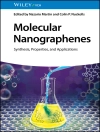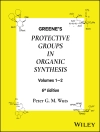An excellent, unique, and up-to-date reference book on
polyoxymethylene, its compounds, and nanocomposites, specifically
dealing with synthesis, characterization, processing, morphology,
and applications
Polyoxymethylene Handbook: Structure, Properties,
Applications, and Their Nanocomposites summarizes many of the
state-of-the-art technological and research accomplishments in the
area of polyoxymethylene (POM). It discusses in length the
polymerization and manufacture of...
A propos de l’auteur
SIGRID LÜFTL, Ph D, is currently involved in
researching the influence of artificial aging on the properties of
polymer materials. She has worked as a researc...
Achetez cet ebook et obtenez-en 1 de plus GRATUITEMENT !
Langue Anglais ● Format EPUB ● Pages 464 ● ISBN 9781118914427 ● Taille du fichier 13.4 MB ● Maison d’édition John Wiley & Sons ● Publié 2014 ● Édition 1 ● Téléchargeable 24 mois ● Devise EUR ● ID 2995145 ● Protection contre la copie Adobe DRM
Nécessite un lecteur de livre électronique compatible DRM












